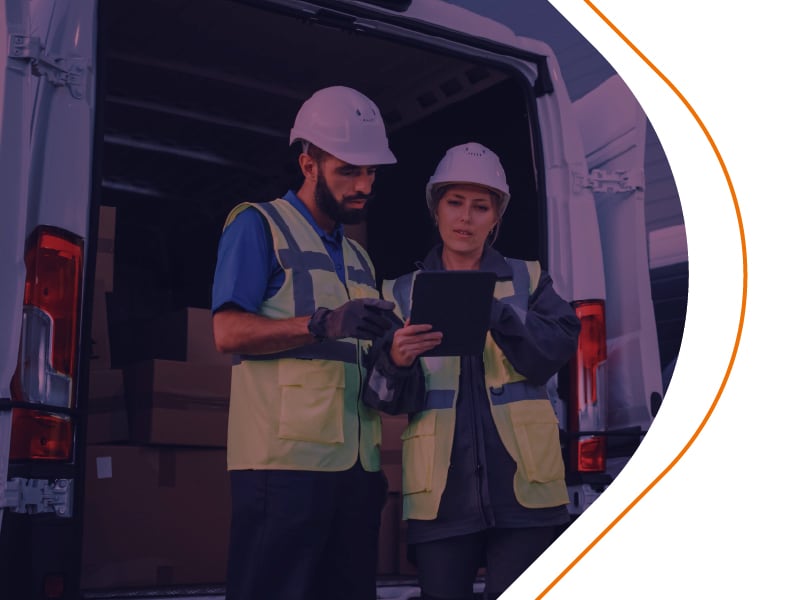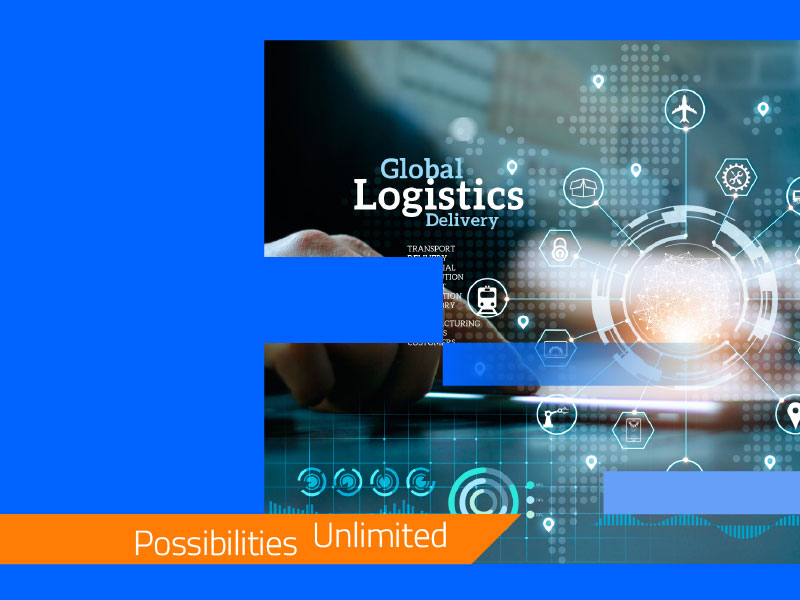Home > TradeEdge > Blogs > The Future Belongs to the Resilient: How a Connected Cognitive Supply Chain Will Become Your Competitive Advantage
The Future Belongs to the Resilient: How a Connected Cognitive Supply Chain Will Become Your Competitive Advantage

Table of Contents
Towards the end of 2018, industry research firm Research and Markets estimated that the global retail industry (including food and grocery, apparel, furniture, consumer electronics, personal care, and jewellery) would be valued at USD 31,880 billion by 2023, at a CAGR of over 5%. It looked extremely positive.
Then came the pandemic, where countries went under lockdowns of varying magnitudes all over the world. A sizeable global population was under lockdown across Asia, Europe, the Americas, and the Middle East. In most of the world, everything apart from food and groceries was categorized as non-essential and was therefore almost unavailable. Nordstrom shut down all its US stores. Even Amazon wasn’t shipping non-essentials in many parts of the world.
Here we are in 2023, and the supply chain industry is yet to find its grip. Inflation is on the rise, essential materials are in short supply, and geopolitical tensions are sending shockwaves across the markets, creating problems in the supply chain. But that’s not the end of the story. Businesses are also grappling with the fallout of disorganized supply chain data trapped in isolated silos, further exacerbating the challenges at hand.
Supply chain resilience is the need of the hour
The idea of supply chain resilience is not new, it has long been discussed in the academia, C-suite as well as on the shop floor. The current pandemic has only accentuated the urgency around it. Experts agree that resilience needs to be adoptive and developmental guiding supply chains to recover from a disruptive event or crisis, as well as find stability in its aftermath. That sure rings a bell!
At EdgeVerve, we believe that two things define supply chain resilience: Their ability to be ‘connected and ‘cognitive’.
Building the foundation of connectedness
Let’s understand a connected supply chain first. A connected supply chain is one that has accurate, end-to-end, near real-time visibility across all its parts — distributors, retailers, local stores etc. On the demand side, this will give the brand sell-through sales and inventory visibility. The granularity of this data at a store- and SKU-level and the ability to receive this in near real-time is what drives the meaningful connections. CPG players are slowly coming to have access to such data but they are few and far between. As the retail industry experts at KPMG write, “The ability to predict and manage demand has never been more important.” But it’s a sad truth that most manufacturers in the retail space don’t have a holistic and timely view of their own supply chain.
And this can be of immense value in today’s unmanageable demand fluctuations, where customers are walking into stores grabbing everything they can into their carts, panic-buying products, and hoarding non-perishables like never before. “Following President Macron’s address on March 12, hypermarkets and supermarkets saw record-breaking sales spiking 84% on the following day (March 13) and up 38% for the whole week, with 6 to 7 times more products sold compared to a regular Friday,” reported Nielsen about the situation in France.
As a result, there arose concerns of stockouts on essentials among CPG players and retailers. A connected supply chain could empower brands to re-direct their products to ‘red zones’ where the demand is high, from other areas where the situation is better. They might be able to identify distributors who have extra stock and move them where needed. They might reduce lead times for delivery by intelligently allocating resources across the supply chain.
Giving it the power of cognition
Cognitive supply chain is one that builds on the data derived from its connectedness towards learning and developing actionable insights. Cognition will drive decisions that optimize KPIs for operations, marketing and brand managers alike. On-time in-full (OTIF), fill rates, inventory turns, promotion effectiveness, to name a few.
A cognitive supply chain leverages artificial intelligence and machine learning capabilities to process complex datasets and variables to make accurate predictions. But, true power is in its ability to sense and adjust in real time.
Consider a typical CPG promotion that runs for 2-3 weeks. Its effectiveness can be measured only with downstream sell-through data. But most CPG companies rely on syndicated data providers like Nielsen and IRI for this data, which may not be timely or have the granularity to react quickly and course correct.
With the ability to use a causal framework to design a promotion and then see the daily sell-through data at a store-level, CPG companies can create micro segments and regularly tweak strategies. In a recent study for a CPG company, we reported 20% stockout for their strategic sales channels for an expensive promotion. This is an surmountable challenge for a cognitive connected supply chain. A recent PWC study finds that only half of the best-in-class digital CPG champions even have the beginnings of a ‘digital twin of their supply chain’.
We might come out of the pandemic to a changed environment — tighter purses, changed channels of purchase, new brand loyalties, new or stressed suppliers, challenges aplenty. At that time, the only thing that’ll differentiate the best from the rest would be their resilience.
At EdgeVerve, we believe that resilient will be those enterprises who invest in a connected cognitive supply chain. The TradeEdge suite of products is designed for enterprises to achieve this vision. We’ve enabled 26 global enterprises — across CPG, apparel, beauty, pharmaceuticals, food and beverages, and technology industries to begin this journey. When you’re ready, we can help you navigate your next.
If you’d like to discuss the product and explore possibilities, don’t hesitate to write to us at Praveen_kombial@edgeverve.com.
Reference:


Praveen Kombial
Vice President & Global Sales Head, EdgeVerve
More blogs from Praveen Kombial >